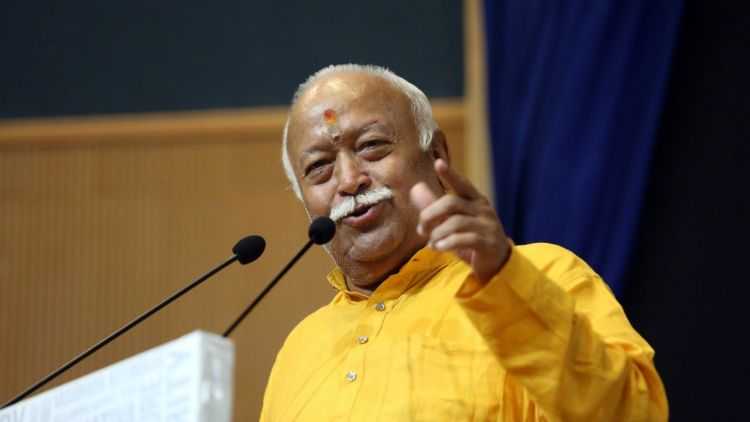Mohan Bhagwat, the Rashtriya Swayamsevak Sangh (RSS) chief, recently urged Hindus to consider having more than two children, sparking a wave of criticism led by AIMIM president Asaduddin Owaisi. However, a closer look reveals a broader context often overlooked in the polarizing rhetoric that followed.
Bhagwat’s suggestion stems from a demographic concern, not religious provocation. India, currently boasting a massive youth population, faces the potential challenge of declining birth rates in the future. Countries like China, once rigidly enforcing a one-child policy, now grapple with a shrinking workforce and an aging population. Even global powers like the U.S. and several European nations are witnessing demographic shifts threatening economic stability.
India’s demographic dividend — a youthful population between 25 and 35 — is a key strength today. Bhagwat’s appeal, viewed through this lens, is a call to preserve this advantage. It is not a mandate but a suggestion rooted in concerns about long-term national stability and demographic balance.
Owaisi’s opposition to Bhagwat’s statement raises questions. Critics argue that viewing this appeal purely through a religious lens fuels unnecessary polarization. As a vocal advocate of the Ganga-Jamuni tehzeeb — a harmonious blend of cultures — Owaisi’s stance seems at odds with his own ideals of mutual respect and understanding across faiths.
One might ask whether this reaction stems from genuine concern or political posturing. The RSS’s focus on demographic trends does not explicitly target any religious community. Instead, it highlights a broader issue of population dynamics affecting all Indians.
The debate also revives questions about secularism and constitutional interpretations. Dr. B.R. Ambedkar, the chief architect of the Indian Constitution, originally resisted including the term “secular” in the document, emphasizing that India’s ethos inherently embraced religious coexistence. Critics argue that subsequent political influences have distorted this vision, often pitting communities against each other for electoral gains.

Ambedkar’s warnings about communal tensions and the need for mutual respect remain relevant. His vision of constitutional protection for all faiths was not meant to undermine the majority’s rights or practices. This perspective is crucial in understanding why Bhagwat’s appeal deserves a fair hearing rather than outright condemnation.
Another point of contention is the selective scrutiny of religious leaders’ statements. Political leaders often avoid questioning pronouncements from minority community heads, citing respect for religious freedom. However, similar deference is rarely extended to Hindu leaders. This double standard fuels resentment and undermines efforts toward genuine secularism.
If secularism means equal respect for all religions, shouldn’t it apply uniformly? Bhagwat’s call for larger families among Hindus, aimed at preserving demographic balance, should be seen as part of the broader discourse on national planning rather than religious interference.
Europe’s experience offers cautionary tales. Countries like Italy and Japan face severe population decline, prompting aggressive pro-natalist policies. The UK, once a global empire, now grapples with changing demographics that challenge its cultural identity.
India, while diverse, must also ensure that its population dynamics remain conducive to economic and social stability. Bhagwat’s call, therefore, is not a threat but a timely reminder to consider long-term implications.
Asaduddin Owaisi and other critics should engage with Bhagwat’s concerns in good faith, recognizing the demographic realities at play. Protecting India’s demographic advantage requires honest, inclusive discussions free from religious overtones. Only then can India truly honour its constitutional promise of unity in diversity. (The author is the official Spokesperson of the Telangana state BJP unit)






